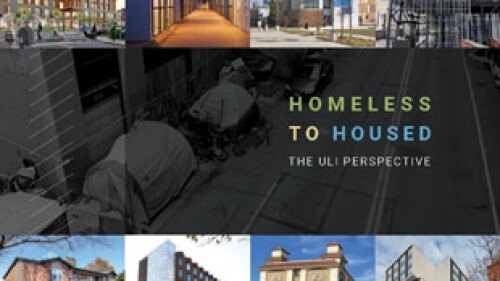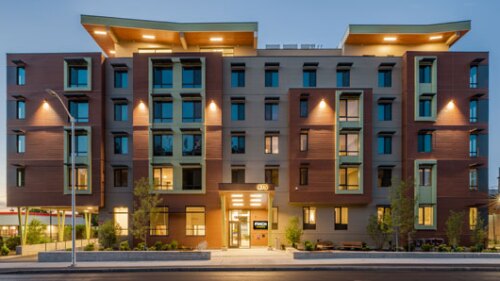Speaking at the 2020 ULI Virtual Fall Meeting, CNN political analyst and former state representative from South Carolina Bakari Sellers said he has two questions for America in 2020: “How far have we come, and where do we go from here?” Sellers was elected to the lower house of South Carolina’s state legislature in 2006 at the age of 22, defeating a 26-year incumbent and becoming the youngest African American elected U.S. official at the time. The session was titled “Education, Civil Rights, and Equality: Cornerstones for Our Future.”
Addressing the first part of his own question, “How far have we come?,” Sellers said that his father—civil rights leader Cleveland Sellers—was imprisoned for a year of hard labor after being shot and beaten by police at a peaceful protest in the 1960s. The senior Sellers was arrested while receiving treatment at a hospital and was unable to attend the birth of his first child.
Sellers, a licensed attorney, also discussed the history of various lawsuits that led to the Brown vs. the Board of Education Supreme Court decision in 1954 that ended “separate but equal” treatment under the law. Sellers said, “Chief Justice Warren, who got a 9-0 opinion, [was] saying segregation ‘causes a sense of inferiority by placing children in environments not conducive to learning.’ Then ask yourself that very simple question: How far have we come?”
While Sellers is considered a rising star in the Democratic Party, he said that, for things to improve, Americans need to leave their silos. “We live in a country that’s extremely siloed,” he said. “We only seek out news and opinions that confirm our own beliefs and views. We have to rededicate ourselves to loving our neighbor, even when they don’t love you.”
Sellers continued, “We have to dream with our eyes open. This pandemic that we’re living through has shown us a great deal about the world we live in.”
Keynote speaker @Bakari_Sellers (@CNN) shares this thoughts on Education, Civil Rights and Equality: Cornerstones For Our Future #ULIFall pic.twitter.com/3KdTu94pZa— Urban Land Institute (@UrbanLandInst) October 13, 2020
“Growing up in Denmark, South Carolina, was a blessing because we didn’t know what we didn’t have,” he said. Sellers said his hometown was a “food desert” where there was limited access to fresh vegetables and fruit. The water was discovered to be contaminated and undrinkable in 2018. He said, “The downtown businesses are closed and even the closest hospital closed.
“One of the things we have in this country is an empathy deficit,” said Sellers. “The only way we can get through this is together.”
During a moderated question-and-answer session, Sellers responded to a question about how best to support people facing difficulty in society, saying, “Listening is sometimes better than speaking. But it isn’t just on Black people to cure racism in this country. I challenge you to have these difficult conversations with many of your peers, with your friends and family, or nothing will change.” He said that parents should think about what they teach their own children that shows they are uplifting people in the workplace and in the community.
“Speak out about the microaggressions you see in the workplace,” said Sellers. “Speak out against the illusion of inclusion. . . . Are people being listened to and are we pushing the envelope on what is possible?”
The idea of a rising tide lifting all boats has not worked, said Sellers. “The [African American] wealth gap has been exacerbated by the pandemic, but part of wealth in America is often through homeownership,” he said. “For people of color, that dream of homeownership or owning a small business has often escaped them.” Sellers said that Martin Luther King Jr. was highlighting the need for higher wages and more affordable housing just before he was assassinated.
Sellers said that most people are not looking for a handout but rather an equal playing field that would pull all Americans up equitably. To promote greater equity, Sellers would propose two constitutional amendments to guarantee access to education and health care. He also said that many younger Americans have large amounts of student debt, which may prevent them from accessing economic opportunities. He noted that he personally pays $2,000 per month for such debt.
Sellers said that he attributes some of Americans’ lack of knowledge about history in part to willful ignorance and in part to a poor educational system. He also said that America cannot wait for the next Martin Luther King Jr. or Rosa Parks to improve equity, since everyone has a role to play. “We’ve missed our moment before,” Sellers said.
There’s still time to register for the 2020 Virtual Fall Meeting to access more content like this. Register Now






